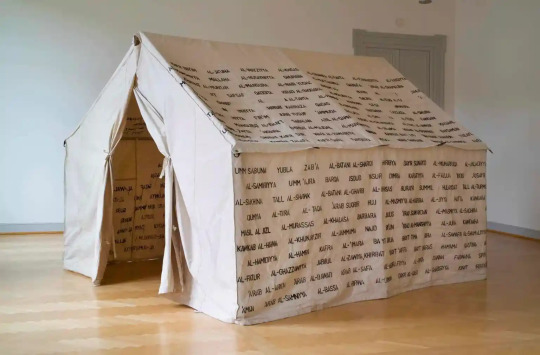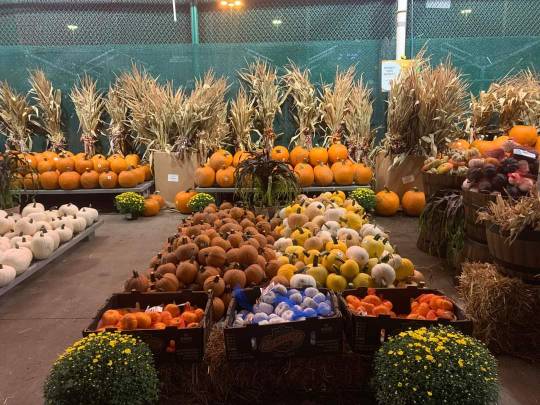#NonTrad
Explore tagged Tumblr posts
Text

x
#the x is a link to the article the pic came from#article is just “how to dress for homemaking” which is kinda good but incredibly subjective#nontrad#nontrad homemaker#housespouse#househusband#homemaking#homestead#cottagecore#aesthetic#home aesthetic#jars#apples#homemade#not mine#cozycore#cozy vibes#cottage vibes#homemaker#grandmacore#kitchen
5 notes
·
View notes
Text
its still so daunting to admit out loud that i’m a premed
most people are encouraging, but others think i’m nuts.
starting from scratch in my thirties since my undergrad is art and psych, and i didn’t take science classes since i did well on my environmental science ap exam
still i’d rather try than just keep spending the rest of my life giving up and settling
hawai’i needs docs bad, especially homegrown docs
a lot to do, but at this point the only rejection that matters will come from med school admission committees not that voice in my head that sounds suspiciously like my mother
10 notes
·
View notes
Text
[ID: a beige, rigid canvas tent large enough for a couple of people to lay down in, embroidered in black with the names of the villages. end ID]

emily jacir, "memorial to 418 palestinian villages which were destroyed, depopulated, and occupied by israel in 1948," 2021, refugee tent, embroidery thread, record book
5K notes
·
View notes
Text
Homemaking, gardening, and self-sufficiency resources that won't radicalize you into a hate group

It seems like self-sufficiency and homemaking skills are blowing up right now. With the COVID-19 pandemic and the current economic crisis, a lot of folks, especially young people, are looking to develop skills that will help them be a little bit less dependent on our consumerist economy. And I think that's generally a good thing. I think more of us should know how to cook a meal from scratch, grow our own vegetables, and mend our own clothes. Those are good skills to have.
Unfortunately, these "self-sufficiency" skills are often used as a recruiting tactic by white supremacists, TERFs, and other hate groups. They become a way to reconnect to or relive the "good old days," a romanticized (false) past before modern society and civil rights. And for a lot of people, these skills are inseparably connected to their politics and may even be used as a tool to indoctrinate new people.
In the spirit of building safe communities, here's a complete list of the safe resources I've found for learning homemaking, gardening, and related skills. Safe for me means queer- and trans-friendly, inclusive of different races and cultures, does not contain Christian preaching, and does not contain white supremacist or TERF dog whistles.
Homemaking/Housekeeping/Caring for your home:
Making It by Kelly Coyne and Erik Knutzen [book] (The big crunchy household DIY book; includes every level of self-sufficiency from making your own toothpaste and laundry soap to setting up raised beds to butchering a chicken. Authors are explicitly left-leaning.)
Safe and Sound: A Renter-Friendly Guide to Home Repair by Mercury Stardust [book] (A guide to simple home repair tasks, written with rentals in mind; very compassionate and accessible language.)
How To Keep House While Drowning by KC Davis [book] (The book about cleaning and housework for people who get overwhelmed by cleaning and housework, based on the premise that messiness is not a moral failing; disability and neurodivergence friendly; genuinely changed how I approach cleaning tasks.)
Gardening
Rebel Gardening by Alessandro Vitale [book] (Really great introduction to urban gardening; explicitly discusses renter-friendly garden designs in small spaces; lots of DIY solutions using recycled materials; note that the author lives in England, so check if plants are invasive in your area before putting them in the ground.)
Country/Rural Living:
Woodsqueer by Gretchen Legler [book] (Memoir of a lesbian who lives and works on a rural farm in Maine with her wife; does a good job of showing what it's like to be queer in a rural space; CW for mentions of domestic violence, infidelity/cheating, and internalized homophobia)
"Debunking the Off-Grid Fantasy" by Maggie Mae Fish [video essay] (Deconstructs the off-grid lifestyle and the myth of self-reliance)
Sewing/Mending:
Annika Victoria [YouTube channel] (No longer active, but their videos are still a great resource for anyone learning to sew; check out the beginner project playlist to start. This is where I learned a lot of what I know about sewing.)
Make, Sew, and Mend by Bernadette Banner [book] (A very thorough written introduction to hand-sewing, written by a clothing historian; lots of fun garment history facts; explicitly inclusive of BIPOC, queer, and trans sewists.)
Sustainability/Land Stewardship
Braiding Sweetgrass by Robin Wall Kimmerer [book] (Most of you have probably already read this one or had it recommended to you, but it really is that good; excellent example of how traditional animist beliefs -- in this case, indigenous American beliefs -- can exist in healthy symbiosis with science; more philosophy than how-to, but a great foundational resource.)
Wild Witchcraft by Rebecca Beyer [book] (This one is for my fellow witches; one of my favorite witchcraft books, and an excellent example of a place-based practice deeply rooted in the land.)
Avoiding the "Crunchy to Alt Right Pipeline"
Note: the "crunchy to alt-right pipeline" is a term used to describe how white supremacists and other far right groups use "crunchy" spaces (i.e., spaces dedicated to farming, homemaking, alternative medicine, simple living/slow living, etc.) to recruit and indoctrinate people into their movements. Knowing how this recruitment works can help you recognize it when you do encounter it and avoid being influenced by it.
"The Crunchy-to-Alt-Right Pipeline" by Kathleen Belew [magazine article] (Good, short introduction to this issue and its history.)
Sisters in Hate by Seyward Darby (I feel like I need to give a content warning: this book contains explicit descriptions of racism, white supremacy, and Neo Nazis, and it's a very difficult read, but it really is a great, in-depth breakdown of the role women play in the alt-right; also explicitly addresses the crunchy to alt-right pipeline.)
These are just the resources I've personally found helpful, so if anyone else has any they want to add, please, please do!
#homemaking#homemaking resources#gardening#urban gardening#self sufficiency#self sufficient living#sustainability#sustainable living#homesteading#nontrad homemaker#nontrad housewife#urban homesteading#solarpunk#cottagecore#kitchen witch#kitchen witchcraft#crunchy to alt right pipeline#book rec#book recommendations#resource#long post#mine#racism tw#racism mention#transphobia tw#transphobia mention
30K notes
·
View notes
Text
helloo!! I'm Kendra! I just wanted a place where I can put all my hopes, dreams and anxieties; (and hopefully make some friends) as I journey towards a 2026 start to med school (fingers crossed🤞🏽)
little background abt me:
- finished undergrad in 2022 w/ a bachelor's of science in health ed with a concentration in mch
- currently working at a repro health nonprofit doing a lot of admin work (I am in close proximity to some cool Quality and Safety in Healthcare projects, which have really inspired me to choose medicine)
- i am currently volunteering at a hospital and finishing up my prereqs at a CC!
- my main is: @femaleenergypt2
0 notes
Text

not to brag but I've perfected my crusty farmhouse loaf for the family daily driver. ft. homemade wax wrap.
35 notes
·
View notes
Text
Sometimes I get scared when i see myself already planning on marriage.
Like I'm turning 19 this year so, I'm not even in my 20s, and uust got into university, but i have this strong desire, to just get married lol.
Sometimes I even feel ashamed to admit it cuz most girls my age seem to want to be independent or get married after they are done with their education and stuff, and it feels foolish of me that I want to throw that all away and become a housewife, I'm embarssed at myself when i think "i don't want to work i want to start a family and take care of them"
Maybe because I romanticised the idea of marriage a little way too much in my head, but I also can't move out due to the nature of my household, maybe because I look at marriage as my only way to actually out to start living, healing and growing the way I want it to be, I hope that I'm right about this though.
Especially the healing part, I believe that having kids itself would help me, i love taking care of people and i think that having kids where i would pour my uncoditional love for and treat them with gentleness and kidness might actually heal me, and i also think that parenting might make me discover parts of myself that i haven't known.
But hell either way i need to bust my ass to get that degree but everyday I'm yearning for that life while I'm studying
32 notes
·
View notes
Text
Tradwives get blocked on sight.
I hate your white supremacist guts.
#homemaker#nontrad housewife#tradfems dni#tradwives fuck off#white supremacy#intersectional feminism
28 notes
·
View notes
Text

🍂 hello fall 🍂
#lgbtqia friendly interaction only#pumpkins#fall aesthetic#autumn#seasonal#halloween#mabon#cottagecore#cozycore#homesteading#cosy#cottage#cozy#nontrad#pumpkin patch#hello fall#aesthetic#market#September#october
53 notes
·
View notes
Text
nothing like bad grades from fifteen years ago tanking my MD dreams… welp, still go DO!
#freshman fuckups#doesn’t matter that I got dean’s list for the majority of my undergrad#gonna make it work but i can also still be mad lol#vent#medblr#premedblr#premed#nontrad#adhd
0 notes
Text
Someone has to keep the home fires burning, create places of rest and stability, in an ever changing world. And for now, that’s enough.
Dispatches of a Feral Housewife
22 notes
·
View notes
Text
As someone who loves to cook but has very bad spatial awareness due to ADHD, I get my clothes absolutely filthy every time I'm in the kitchen. An apron would fix this, but I'm genuinely having trouble finding one online that doesn't give off tradwife influencer/Waldorf homeschool mom/evangelical cult of womanhood vibes. Does anyone know where I can find an apron that will keep my clothes clean but like. in a way that says "I'm a queer disabled woman who loves vaccines"?
#maybe i should get one of the tradwife looking ones and just embroider “i love abortion” on it#or get one of those grillmaster dad novelty aprons#or sew my own i guess#homemaking#nontrad homemaker#cooking#nontrad housewife#apron#kitchen witch#cottage witch#witchblr
56 notes
·
View notes
Text
Homesteading Resources Master Post
So, I have been really into homesteading lately, you call it a hyperfixation, I call it free dopamine. This is my masterlist of sources for different aspects of homesteading life. I plan on making a life in the city homesteading masterlist too. Please be careful when canning a preserving food, I am not an expert, but these sources seemed credible so be sure to can with caution.
Happy Homesteading!
General
Homesteading 101
Skills to Develop
Farmers Market Directory
Ways to make a Profit
Farmer's Almanac
Livestock
Livestock Pros and Cons
Meat Rabbit Guide
Pigs Guide
Chicken Guide
Ducks Guide
Goat Guide
Sheep Guide
Meat Cow Guide
Milk Cow Guide
Gardening
Composting
USA Planting Zones
Europe Planting Zones
Homemade Pest Control
High Yield Garden
High Yield Vegetables
Pollinator Garden
Canning
Canning 101
Fruit
Vegetables
Kitchen
Veggie Recipes
Bone Broth
Wheat to Bread
Sustainability
Self Sufficiency
Reduce, Reuse, Recycling
Clothes Mending
Crafts
Cross Stitch
Embroidery
Whittling
Crochet
Quilting
Knitting
#homesteading#nontrad homemaker#farmlife#farming#farm#plants#crafts#embroidery#gardening#livestock#masterlist#tips#canning#food preservation
80 notes
·
View notes
Text
the one thing i absolutely cannot stand in fandom is how annoying people get with the compulsion to interpret every f/m relationship as nuclear romantic+sexual.
it's always 'fuck yeah queer rep' until the queer rep is a cis man and cis woman with an atypical or queerplatonic relationship.
#obviously this specifically applies to a limited number of pairings. but it's the same with f/m pairings who are just friends#or have a nontrad familial relationship#people just CANNOT handle that for some reason#gothihop speaks
15 notes
·
View notes